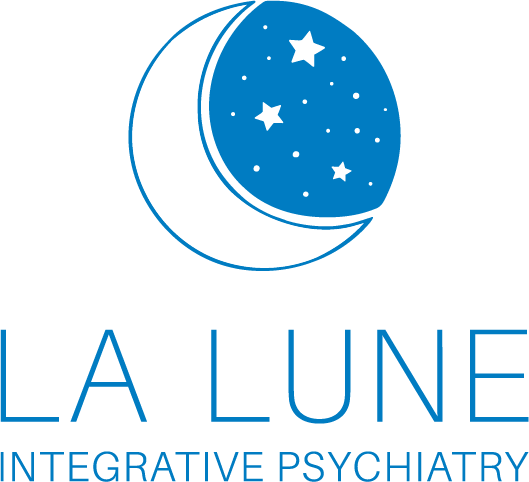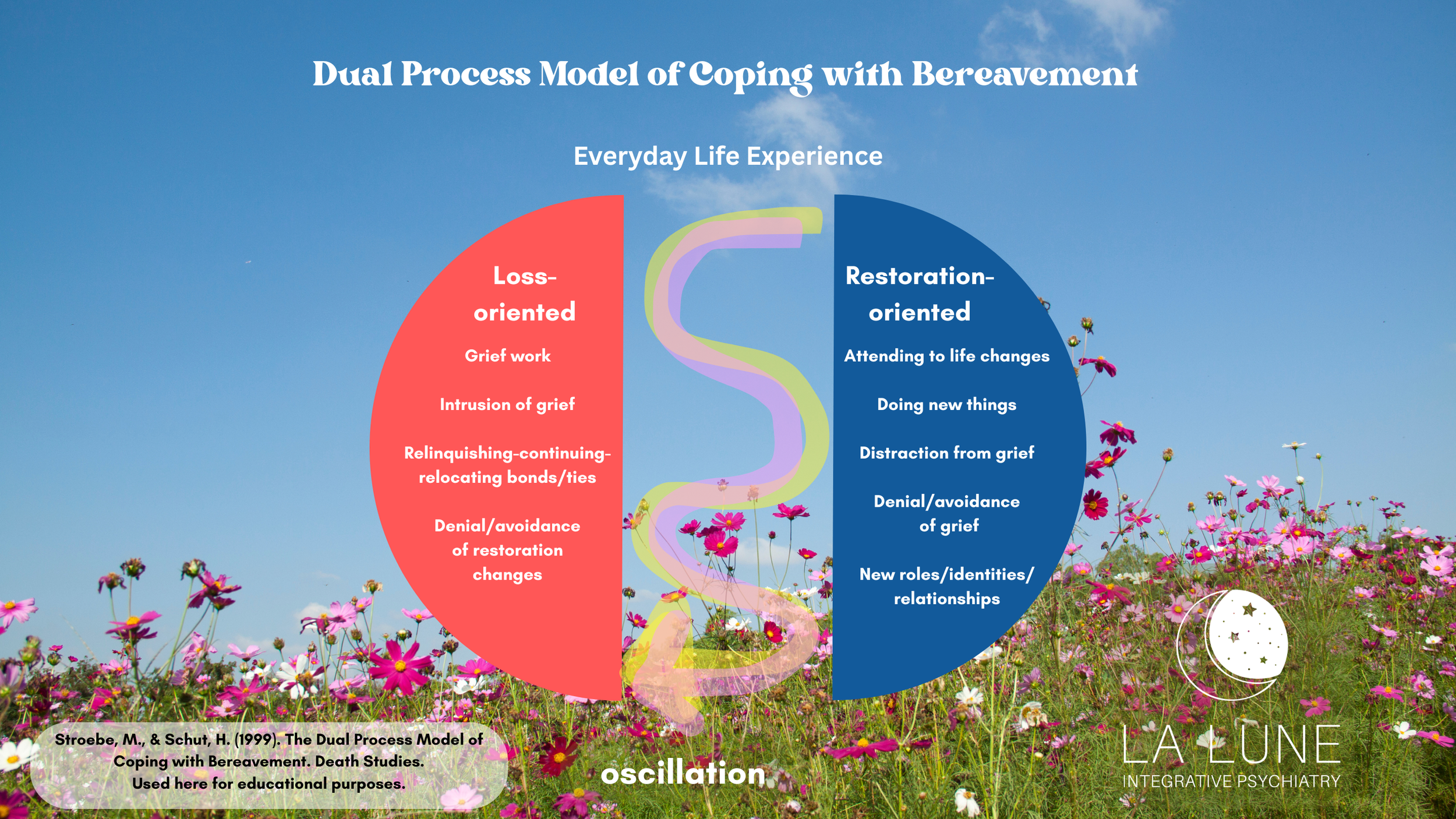
Therapy or Medication Management for Trauma and PTSD
Compassionate, evidence-based support for trauma recovery and PTSD — honoring your story, at your pace.
What Trauma-Informed Care Means
At La Lune Integrative Psychiatry, trauma-informed care means understanding how past experiences shape your thoughts, emotions, and relationships — and providing care that prioritizes safety, trust, and collaboration.
You don’t have to relive your trauma to heal from it. Instead, our approach focuses on helping you regulate your nervous system, rebuild self-trust, and reconnect with your values and goals.
Trauma can stem from many experiences — not just one event. It may arise from chronic stress, medical trauma, loss, abuse, discrimination, or long-term instability. Whatever your story, your body and mind have adapted to protect you. Healing begins by understanding those adaptations with compassion, not judgment.
How Trauma Can Affect Daily Life
The effects of trauma are often more than emotional — they can impact focus, sleep, relationships, and even physical health. You may notice:
Feeling constantly “on alert” or easily startled
Difficulty relaxing or feeling safe
Recurring memories, nightmares, or intrusive thoughts
Avoidance of certain people, places, or emotions
Emotional numbing or detachment
Shame, guilt, or loss of identity
Physical symptoms like fatigue, headaches, or muscle tension
If any of these feel familiar, you’re not alone. Trauma responses are the body’s way of trying to stay safe — but they can become exhausting over time.
How We Support Trauma Recovery
Healing looks different for everyone. At La Lune, we approach trauma through an integrative psychiatric lens, focusing on the connection between mind, body, and environment.
Our trauma-informed approach may include:
Medication management to reduce symptoms of anxiety, depression, or insomnia, helping you feel more stable and ready for therapy or daily life.
Supportive and integrative therapy to explore emotions safely, build coping tools, and reconnect with your values.
Lifestyle and holistic guidance, including mindfulness, sleep, and stress-regulation strategies.
Collaborative care, coordinating with primary care providers, or specialists when deeper trauma processing (like EMDR or CPT) would be helpful.
The goal isn’t to erase your story — it’s to help you live it with more peace, self-compassion, and control.
When to Reach Out
You may benefit from trauma-informed psychiatric care if you:
Feel emotionally reactive or disconnected after stressful experiences
Notice trauma symptoms worsening over time
Have difficulty engaging in therapy because of anxiety, sleep loss, or overwhelm
Want medication support alongside therapy
Are seeking an approach that sees you as a whole person, not just a diagnosis
You don’t have to go through healing alone. Sometimes, stabilizing your body and mind through medication or supportive care is the first step toward deeper recovery.




















